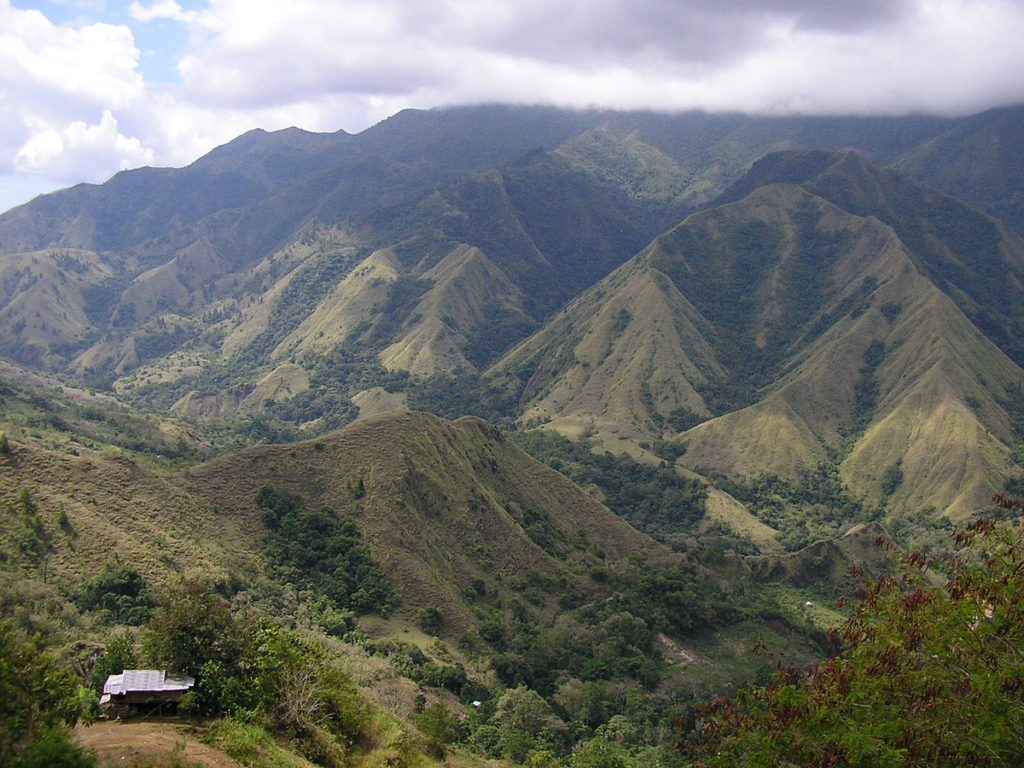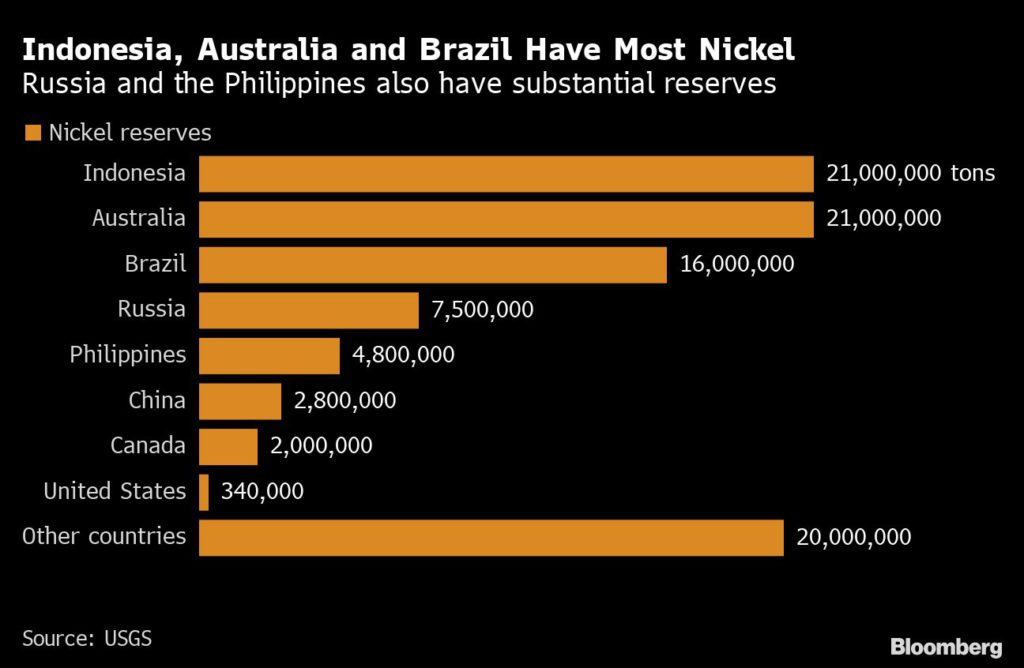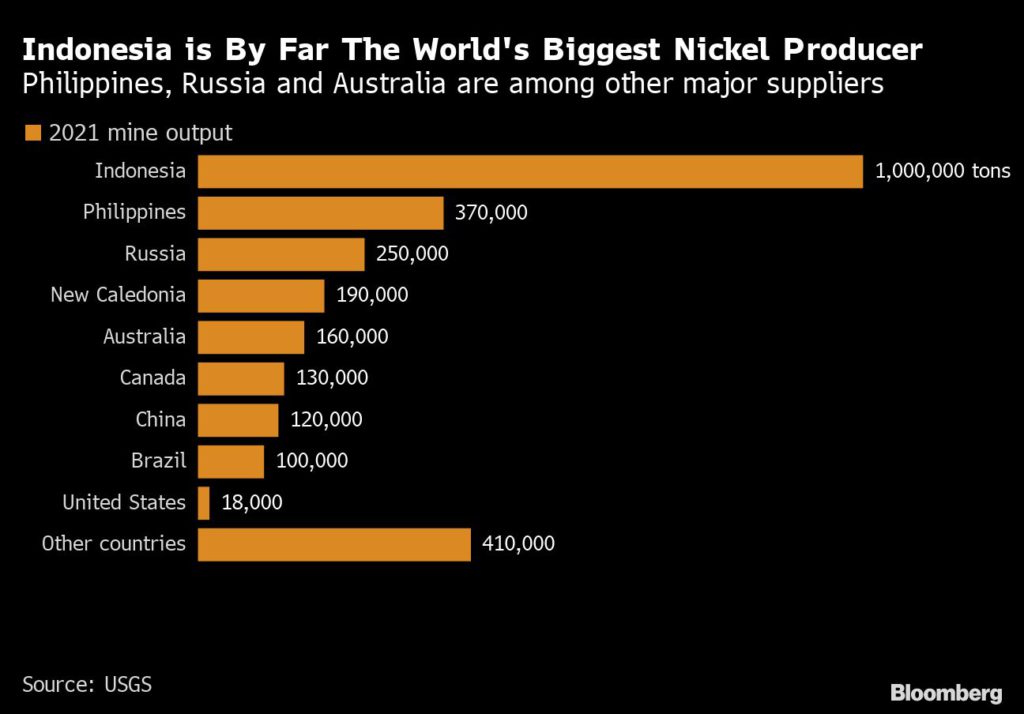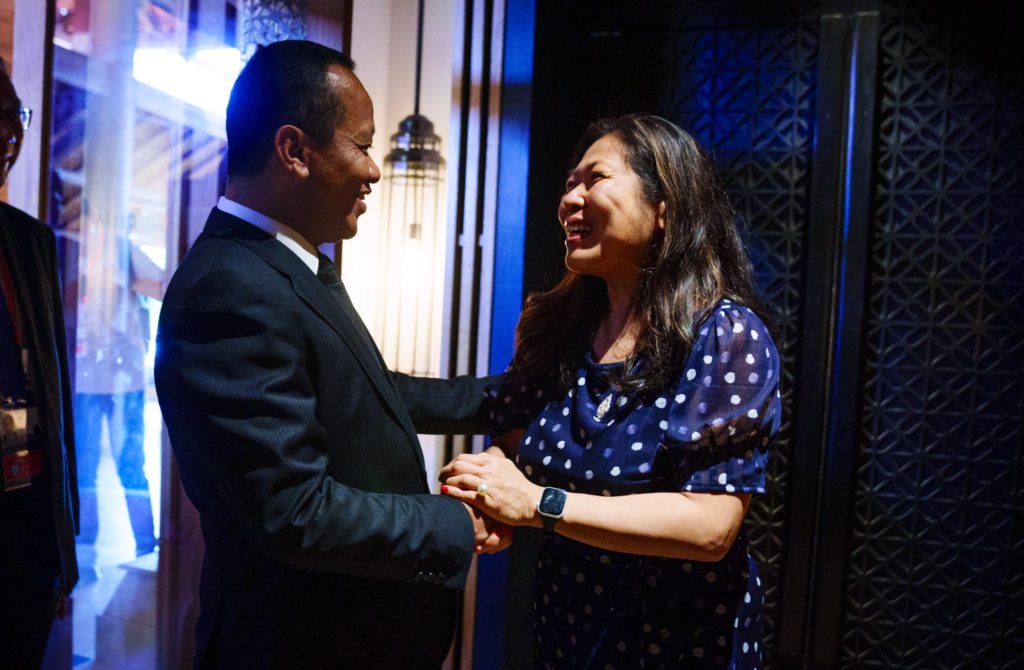Bloomberg News | November 17, 2022 |

South Sulawesi, Indonesia. Credit: Wikimedia Commons
An Indonesian proposal to create an OPEC-like group of nickel suppliers has raised eyebrows among Australian miners.

Indonesian Investment Minister Bahlil Lahadalia floated the idea of an alliance that he said would help to unite government policies on the in-demand battery metal — and push the development of the downstream industry — at the Group of 20 Summit in Bali this week. The plan has been discussed with both Canada and Australia.
The Minerals Council of Australia, the country’s major mining association, wouldn’t support the formation of supply-constricting cartels, according to Chief Executive Officer Tania Constable.
It’s “very useful that countries work together to solve the problems that we have around the supply of critical minerals,” she said. However, “we’ll always be mindful we are meeting all our international trade obligations, and you don’t see cartels forming,” Constable said.
Indonesia is the biggest producer of nickel by a wide margin and is home to around 20% of the world’s deposits of the metal, US Geological Survey data show. Australia has a similar level of reserves but less than a fifth of the output of its neighbor.

Jakarta’s proposal on nickel — used for electric vehicle batteries — fits with Indonesian President Joko Widodo’s strategy of the nation becoming a hub for more refining of metals and even production of electric vehicles. The country hopes to leverage its mineral deposits to move up the supply chain as the world de-carbonizes.
Indonesia is approaching Canada, which also has significant nickel deposits, on the plan, and discussed speeding a potential trade agreement between the two countries this week, Lahadalia said.
However, Canada is unlikely to sign on to the proposal for a nickel alliance, according to a Canadian government official familiar with the matter. Trade Minister Mary Ng wouldn’t agree to collaborate on the idea when she met with her Indonesian counterpart, according to the official, speaking anonymously to discuss a private meeting.
The Australian government didn’t immediately respond to a request for comment on the investment minister’s idea.
The world’s major nickel producers and holders of reserves are a diverse group, both geographically and politically, which may make forming a cartel difficult. After Indonesia and Australia, Brazil has the largest deposits, followed by Russia, the Philippines, China and Canada. In terms of output, Indonesia is the biggest by far, ahead of the Philippines, Russia and New Caledonia.

Indonesia’s proposal would add to increasing complexities in battery-material supply chains that are still in relative infancy. The bid to bring producer nations into a closer relationship comes as major economies including the US try to develop more secure sources of supply.
President Joe Biden’s Inflation Reduction Act requires carmakers to process the majority of their battery materials onshore or in a country with a free-trade agreement with Washington if they want to receive tax credits, said Conrad Mulherin, director, energy transition, at PWC Australia.
The US and Indonesia don’t have an FTA.
Nevertheless, Indonesia’s huge reserves give it bargaining power, Mulherin said. “The reality is there is not enough nickel within the FTA countries to supply to the US car industry.”
(By James Fernyhough, with assistance from Sing Yee Ong, Eko Listiyorini, Martin Ritchie, Ben Westcott and Brian Platt)
Canada ‘very unlikely’ to join OPEC-like group for nickel – gov’t source
Reuters | November 17, 2022 |

Indonesia’s Investment Minister Bahlil Lahadalia and Canadian Trade Minister Mary Ng discussed the potential for a critical minerals partnership earlier this week. Credit: Mary Ng’s official Twitter page
Canada has not committed to establishing an OPEC-like organization for nickel-producing countries with Indonesia and is “very unlikely” to participate in any such group, a Canadian government source familiar with the discussions said on Thursday.

Indonesia proposed talks with Canada to establish the organization in a meeting between Investment Minister Bahlil Lahadalia and Canadian Trade Minister Mary Ng on the sidelines of the G20 summit in Bali earlier this week.
A statement from Bahlil’s office said Ng “welcomed the proposal and the next step for both countries to explore such collaboration opportunity.”
“Minister Ng did not commit to exploring this collaboration at this time,” said the source who was not authorized to speak on the record. “It is very unlikely we will be doing this (joining an OPEC-like nickel group). Officials expressed high levels of reservation about the Indonesian proposal.”
A spokeswoman for the Indonesian investment ministry did not respond to a request for comment made outside of office hours.
Oil companies in many OPEC countries such as Saudi Arabia are owned by the government while in countries such as Nigeria contracts stipulate that government can compel private companies to cut or raise production.
A suggestion for a nickel OPEC had been met coolly by Canadian producers, who said a global cartel would not benefit them.
“Canadian companies are integrated into the North American supply chain and the Canadian resource base is a little bit different,” said Canada Nickel Chief Executive Mark Selby. “This proposal is more of a way for Indonesia to capture more value in their own country.”
Bahlil said on Wednesday that a group of nickel-producing countries could make sure they get an optimal return from the electric vehicle (EV) industry.
The two ministers did discuss working with “allies such as Indonesia to develop sustainable and resilient global supply chains,” said the source.
Indonesia and Canada are the world No. 1 and No. 6 nickel producers, respectively.
(By Steve Scherer, Bernadette Christina and Divya Rajagopal; Editing by Matthew Lewis)
No comments:
Post a Comment